Why not win with overwhelming superiority in the shelter of anonymity, instead of breaking bones in races where more aliens ride?
CyclingFriday, 05 April 2024 at 09:00
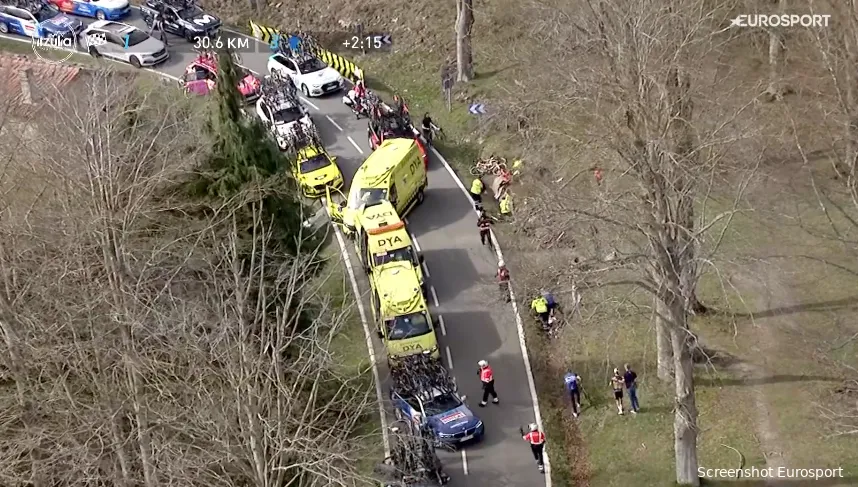
An afternoon and evening with a lump in the stomach; it's been the case too many times this season. Another bone-crushing crash, another agonizing wait for the damage report, and in the end, another string of fractures. Another lineup of big names we won't see in action for weeks or months. It's happened after just one of those rare engagements where we had almost all the top riders on one planet together.
Much has been written in recent weeks and months about the schedules of the six top riders at the moment: Jonas Vingegaard, Tadej Pogacar, Primoz Roglic, Remco Evenepoel, Mathieu van der Poel, and Wout van Aert have become a pool from which all race organizers prefer to draw. At least one at the start, preferably two, and if possible, even three.
Did Vingegaard, Pogacar, and the rest avoid each other?
However, there was remarkably little overlap in the schedules of the six riders in the first months of 2024. Roglic and Evenepoel crossed paths in Paris-Nice, while Van der Poel and Van Aert only met each other in the E3, and Pogacar competed against Van der Poel in Milan-Sanremo. Additionally, there was the showdown between Evenepoel and Van Aert in the Algarve. That was about it. Vingegaard was the lone alien in O Gran Camiño and the Tirreno, Pogacar was the sole contender in Strade Bianche and Catalunya, and Van der Poel had to go solo in the Tour of Flanders due to Van Aert's crash in Dwars door Vlaanderen.
There was considerable criticism of these choices. Were the cycling giants intentionally avoiding each other? Journalist Thijs Zonneveld jokingly suggested that races should only be allowed to take place if at least two of the six top riders are competing. With just one, it was too dull, and the domination over the rest was too pronounced. That's why it was so exhilarating that in the Tour of the Basque Country, all conventions were defied. Roglic, Evenepoel, and Vingegaard—THREE of them! That promised fireworks; it couldn't be anything less. Cycling fans were eagerly anticipating the showdown, knowing that other teams were also bringing strong contenders to Spain, such as David Gaudu, Mattias Skjelmose, and Juan Ayuso.
Are crashes in the Basque Country coincidence?
Unfortunately, the Tour of the Basque Country never lived up to its promise of fireworks. Instead, on days one, two, three, and four, the race was marred by crashes, some more severe than others. While we could still laugh about Evenepoel's slip in the time trial, Tom Pidcock's crash during the time trial reconnaissance was just bad luck. However, on day two, several unexpected contenders hit the ground during the final stretch, and on day three, Roglic and Ayuso collided with the asphalt at the front. The situation took a drastic turn on the fourth stage: virtually all the top riders went down in one turn, collectively meeting the concrete. Some crashes were more severe than others, resulting in retirements and a long list of fractures. Vingegaard and Evenepoel withdrew from the race, and Roglic was also left battered.
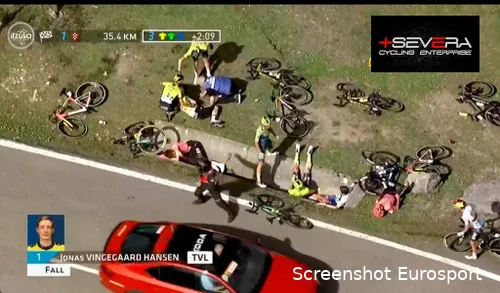
Stones on the road, a perilous ditch, and rocks along the course—there was a lot of yelling and pointing after the race. The big question is: Was that where the real problem lay? Or did we hype up such a battle so much that the riders and teams involved also began to believe that the Tour de France was halfway won in the Basque Country? Why was and is this week's race being treated as an afterthought by the frontrunners, in places where the top teams and leaders of this sport typically fight for every inch in every corner? Is that a coincidence? Or a consequence of too many contenders vying for position?
Did teams make the right decision in setting up various programs?
After yet another crash, the question arises: Weren't the teams right when, in the winter, perhaps not entirely inadvertently, they sent their top riders to races where others were absent? Because there was no battle at the front in those races... The pelotons in Strade Bianche, Catalonia, Galicia (O Gran Camiño), and Italy (Tirreno) found it logical that UAE-Team Emirates and Jumbo-Visma | Lease a Bike took control and quietly dominated the races from start to finish. Control and dominance that were far from evident in the Basque Country from kilometer one.
Unfortunately, this was predictable when the start list was announced and the ambitions were expressed. And to think that in July at the Tour de France, the Basque scenes will be even more intense. Then, in addition to Vingegaard, Evenepoel, and Roglic, Pogacar will also be at the start. Four teams with eight riders (24 in total), all aiming for a top ten finish. And don't assume that the French teams and outfits like Lidl-Trek will be easily pushed aside. The fear of more chaos is well-founded, leading to the conclusion that they were all justified in their decisions this winter. Why take so much risk in crowded preparation races when much greater risk will have to be taken later in July? Why not secure wins with supremacy and prepare the legs, instead of risking injuries in races where another top rider happens to be competing?
No Evenepoel in Liege, no Vingegaard in the near future, entire programs disrupted, as was the case with Pogacar in 2023 after a crash in Liege. Or all those crashes in, say, races like the Dauphiné in recent years... Was this dreadful day worth a Basque race full of superstars? To ask the question is to answer it. And the answer will likely prompt teams to avoid such risks even more rigorously in 2025, postponing chaos until there is simply no other option...
IDL-productions
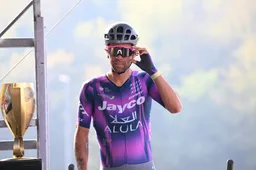
Sanremo, a world title and the yellow jersey: Michael Matthews escaped death - and that reignited his spark
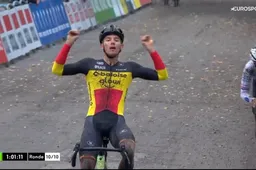
Unlike road colleagues Van der Poel or Van Aert, Nys rides twice as many cyclo-crosses: 'He doesn't want to ride only ten cyclo-crosses'
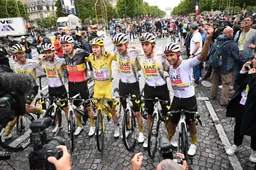
95 (or was it 97?) wins and a new record year, but losing that one race still hurts UAE Team Emirates - XRG

Former cyclocross world champion recalls wonderful memories of young Nys: "Back then we thought: that's not going to work out"

There was smoke so there was fire, but in 2026, how will Lidl-Trek make sure that fire doesn't flare up again?
Latest Cycling News
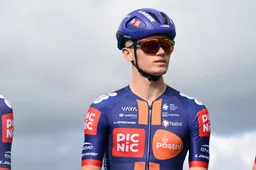
A massive transfer deep into December: Oscar Onley signs for INEOS Grenadiers after all
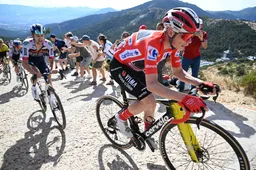
“I’m already saying too much," says mysterious Vingegaard with a smile, as he looks to continue his other side in 2025
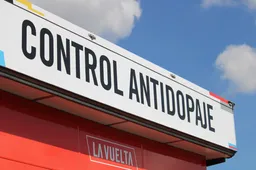
Not new doping variant with sea worms, but excessive drug use in peloton triggers warning
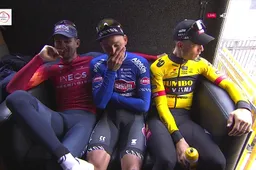
Pogacar and Van der Poel beware! Besides Ganna, Van Aert also writes visit to Italy on his calendar?
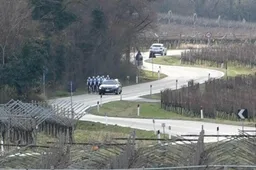
🎥 Shock in Italy as cycling team is fired upon by passing driver during training
Popular Cycling News

🎥 Shock in Italy as cycling team is fired upon by passing driver during training

“I’m already saying too much," says mysterious Vingegaard with a smile, as he looks to continue his other side in 2025

Not new doping variant with sea worms, but excessive drug use in peloton triggers warning
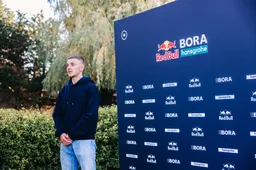
Evenepoel knows what he needs to beat Pogacar and believes he can win the Tour in 2026

A massive transfer deep into December: Oscar Onley signs for INEOS Grenadiers after all
Latest Comments
- Those events are mental rest for him. Fun, without expectations. *Sagan lost his abilities because he gained weight and got lazy. Pogi will likely retire before that has a chance at happening.Veganpotter14-12-2025
- Ah, the consequences of riding for Israel.Veganpotter11-12-2025
- Pidcock could follow everyone but Pogi while finishing 3rd. No second place rider this season😃Veganpotter16-11-2025
- Now the Palestinian protestors can stop their whining. Trump came to the rescue. So they can now STFU and go back to waving the rainbow flags.raufus15-10-2025
- Cracked the code lol. If it was that easy to 'crack the code' jonny Vegas would be charging up the Kwaremont giving Pog a dose of his medicine. Evenepoel can't match pog on a climb and neither can mvdp. Anything with a half difficult climb and Pog smashes the field. Even on flat(ish)parcours like Roubaix it came down to a mistake and crash by pog to definitively crown mvdp. MSR is the only one that Pog probably won't win.kevpt10-10-2025
- We've seen this movie before. I think Pogacar is doping.DeadBlow10-10-2025
- 👍Bea08-10-2025
- 👌🏻Bea08-10-2025
- What the data doesn't show is how much of an effect drafting had for evenepoel. Pogacar went with del toro at 100km whilst Evenepoel was still in the bunch. Despite the bike changes he still had a lot of assistance getting back to the bunch. Pogacar then rode 60km solo whilst evenepoel rode with Healy/Skjelmose until going solo in thd last 10-15km. Thats ~20% less power / energy requirements for 45-50km. Apples and oranges...kevpt30-09-2025
- 👏👏Bea24-09-2025
Loading